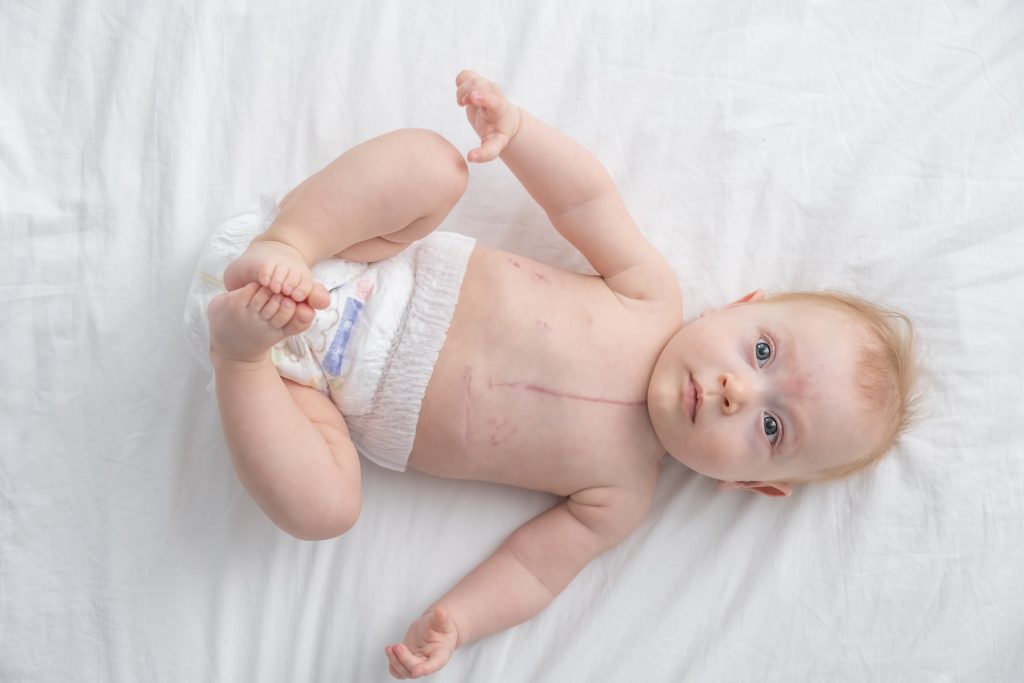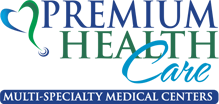Congenital Heart Defects (CHDs) are the most common type of birth defect, affecting millions of families worldwide. Every year, healthcare providers and organizations come together to raise awareness during Congenital Heart Defect Awareness Week, which takes place from February 7–14. This week serves as a crucial opportunity to educate the public about CHDs, their impact on individuals and families, and the latest advancements in diagnosis, treatment, and care.
At Premium Healthcare, we recognize the importance of spreading knowledge about congenital heart defects and supporting those affected. By increasing awareness, we aim to foster a better understanding of CHDs, promote early detection, and encourage preventive measures.


What are Congenital Heart Defects?
Congenital Heart Defects are structural problems with the heart that are present at birth. These defects can involve issues with the heart’s walls, valves, or blood vessels, disrupting normal blood flow. CHDs can range from mild to severe and may require immediate medical intervention or lifelong care.
Common types of congenital heart defects include:
- Septal Defects: Holes in the walls of the heart that separate the chambers.
- Valve Defects: Abnormalities in the heart valves, affecting blood flow.
- Coarctation of the Aorta: Narrowing of the aorta, the large blood vessel that carries oxygenated blood from the heart.
- Tetralogy of Fallot: A combination of four defects that cause oxygen-poor blood to flow out of the heart.
While some congenital heart defects can be diagnosed in utero with advanced imaging technologies, others may not be detected until infancy or even later in life. Early diagnosis and treatment are key to improving outcomes and quality of life for those affected.
The Impact of Congenital Heart Defects
According to the Centers for Disease Control and Prevention (CDC), approximately 1 in 100 babies born each year in the United States has a congenital heart defect. This means that around 40,000 babies are born with a CHD annually, with varying degrees of severity. Many individuals with CHDs live healthy, fulfilling lives, thanks to early detection, medical advancements, and surgical treatments.
However, for others, CHDs can be life-altering. Some children with severe CHDs may require immediate surgeries or lifelong monitoring and care. In some cases, individuals with complex CHDs may face ongoing health challenges, including developmental delays, respiratory issues, and physical limitations.


The Importance of Congenital Heart Defect Awareness Week
Congenital Heart Defect Awareness Week is an important time for raising awareness about the realities of living with a CHD and highlighting the importance of early diagnosis, treatment options, and research. Here’s why it’s crucial to get involved:
- Increasing Public Knowledge: Many people are unaware of the prevalence of CHDs or the fact that they can affect individuals across all demographics. By educating the public, we can help remove the stigma surrounding heart defects and encourage people to seek early medical evaluations if they notice symptoms or have a family history of heart conditions.
- Supporting Families Affected by CHDs: Families of children with CHDs often face emotional and financial challenges. Awareness efforts help connect these families with resources, support groups, and healthcare professionals who can offer assistance throughout their journey.
- Advancing Research and Treatment: Funding for congenital heart defect research can help improve diagnostic techniques, treatment options, and long-term care. Research initiatives are essential for finding innovative solutions to improve outcomes and quality of life for individuals living with CHDs.
What Can You Do During Congenital Heart Defect Awareness Week?
- Learn About CHDs: Educate yourself and your loved ones about the different types of congenital heart defects, their symptoms, and treatment options.
- Share Your Story: If you or someone you know has been affected by a CHD, consider sharing your experience on social media or through personal blogs to raise awareness.
- Get Involved: Participate in awareness events or fundraisers organized by CHD support groups, hospitals, and healthcare organizations.
- Donate to CHD Research: Consider making a donation to organizations like the Children’s Heart Foundation or the American Heart Association to help fund vital research into congenital heart defects.
Congenital Heart Defect Awareness Week is a time to reflect on the importance of early diagnosis, ongoing research, and supportive care for individuals with CHDs. By raising awareness and taking action, we can make a significant difference in the lives of those affected. At Premium Healthcare, we are dedicated to improving heart health and supporting families affected by congenital heart defects. Together, we can work towards a future where every child with a congenital heart defect has the opportunity to live a long, healthy life.


